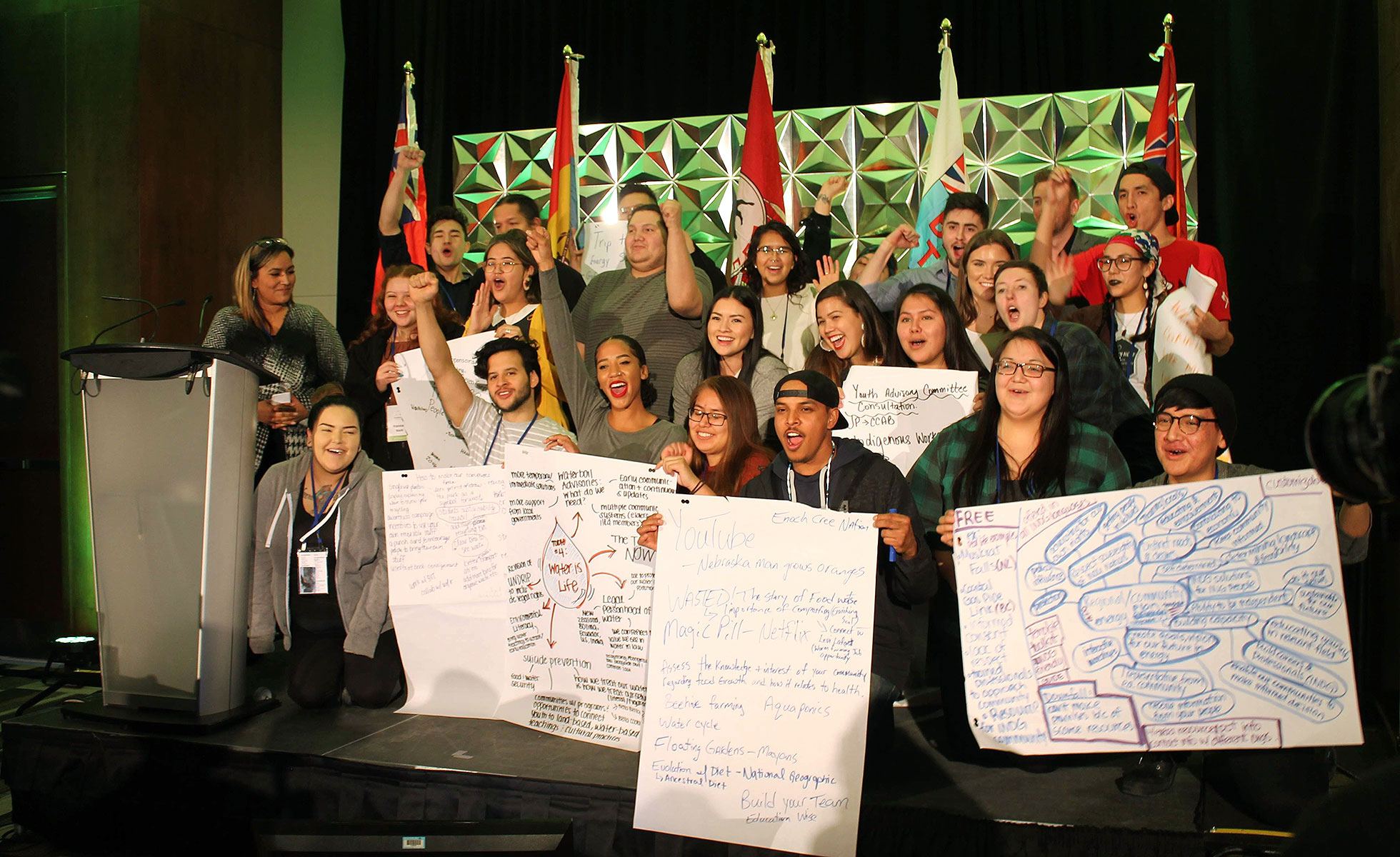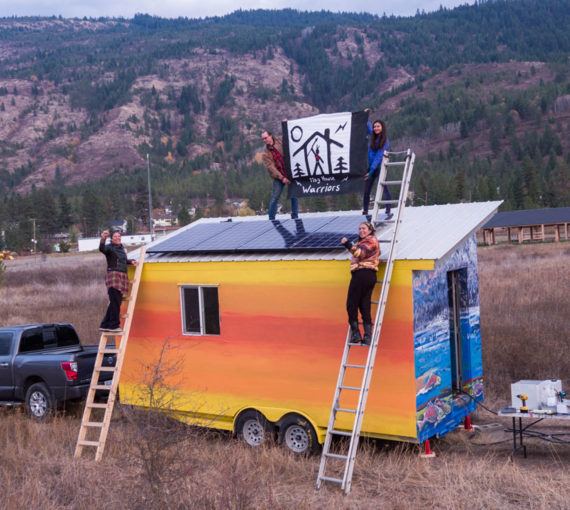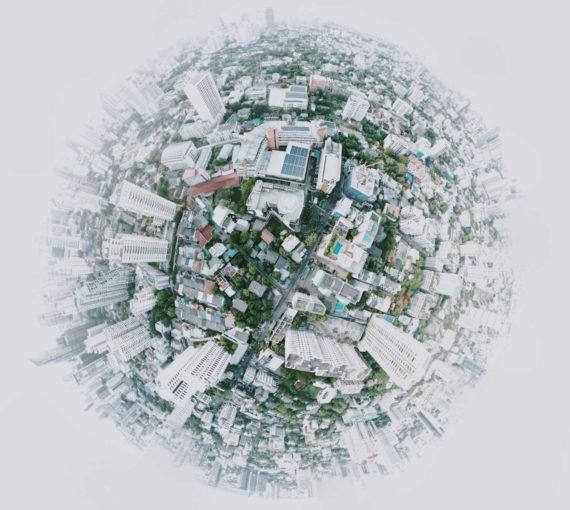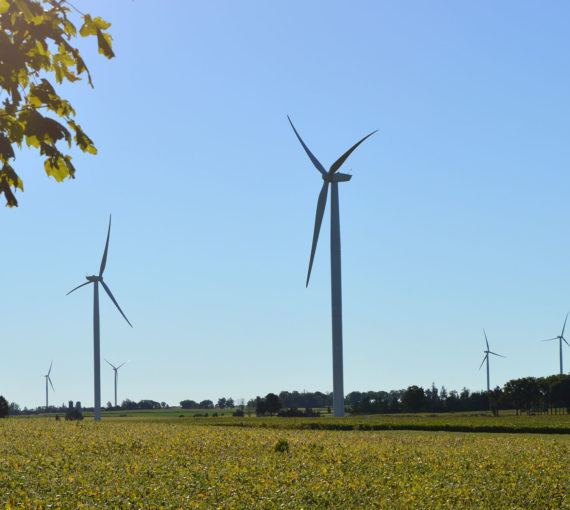
Participants at the SevenGen gathering in Calgary came to learn about opportunities in Canada’s energy transition from an Indigenous youth perspective. (Photo: Student Energy)
Energy is inextricably linked to a range of community issues, from health to housing. That was one message that emerged from a four-day gathering in Calgary of more than 200 young Indigenous leaders from every province and territory, organized by Disa Crow Chief of the Siksika Nation and Cory Beaver of the Stoney Nakoda Nation.
Participants came to the SevenGen gathering in January to learn about opportunities in Canada’s energy transition from an Indigenous youth perspective. Beaver and Crow Chief are keen to engage young people in Indigenous-led energy solutions and find them ongoing mentorship opportunities.
SevenGen’s website explains, “As youth of the seventh generation, we feel a renewed responsibility to protect our environment, as water protectors and guardians of all creation. Through SevenGen, we hope to strengthen relationships between Indigenous and non-Indigenous youth from diverse backgrounds, share knowledge across cultures, and ensure that the wellbeing of land, water, and all the life within it remains at the forefront of discussions about energy.”
For non-Indigenous participants, the notion that many issues we often consider separately are interconnected was striking. Ideas around energy were closely entwined with language, food self-sufficiency and improved housing, health and well-being. All were grounded in a perspective that emphasizes a deep connection to the land and a responsibility to it and the life it holds.
If we continue to elevate only voices of those who have traditionally held power, we won’t likely discover meaningful solutions to the problems we collectively face. Listening to people with different world views is essential to finding new ways forward.
As Indigenous and non-Indigenous people alike grapple with the energy, climate and social challenges facing our communities, we must understand the importance of diversity. If we continue to elevate only voices of those who have traditionally held power, we won’t likely discover meaningful solutions to the problems we collectively face. Listening to people with different world views is essential to finding new ways forward.
Indigenous leaders aren’t waiting to be invited to the table. Judith Sayers of the Hupacasath Nation, Gordon Planes of T’Souke Nation and others talked about work their communities are already doing to shift to greater self-reliance through community renewable energy and efficiency projects. These provide clean energy, training, jobs and economic development opportunities.
Lumos Energy president Chris Henderson noted that 20 per cent of Canada’s renewable energy projects are Indigenous efforts. He says community-led renewable energy projects not only bolster energy democracy — allowing communities to produce energy rather than depending on large corporations or utilities — but are also seen by some as part of the way toward decolonization.
“We are the future leaders for our nations, and getting more Indigenous people involved in renewable energy projects will not only benefit our own communities but Canada as a country,” Crow Chief explained.
Community-led renewable energy projects not only bolster energy democracy — allowing communities to produce energy rather than depending on large corporations or utilities — but are also seen by some as part of the way toward decolonization.
David Suzuki Foundation fellow Melina Laboucan-Massimo spoke about her community’s experience with toxic oilsands pollution that severely affected air and water quality. This experience fed her determination to see her community benefit from renewable energy.
In “Let them drown: the violence of othering in a warming world,” Naomi Klein points out that fossil fuel extraction has always required sacrifice zones, and that the poorest communities and people of colour have always been most likely to feel the brunt of industrial impacts.
Unlike renewable energy, which can be distributed, fossil fuel extraction occurs in specific places. It’s no accident that people who have lived on these territories for millennia have been viewed as “others” by those who wish to profit from extraction.
Crow Chief said that, at 21, she’s been to more funerals than graduation ceremonies or weddings. Many in the audience nodded in agreement. “I refuse to do nothing and dwell in hopelessness,” she said.
“Our elders always tell us to do things in a good way — to think in a good way, to act in a good way,” said Steven Crowchild, from the Tsuut’ina Nation. It’s easy to lose sight of the value of being a good person, of being a good ancestor. He, like many other young leaders, draws strength from his culture and community.
We should all think more about how to be good. As Crow Chief said, “I want to remind you all to be honest and brave when going about your days, wherever it is you come from. I want you to know that you are always supported and a part of something bigger when using your voices to spread kindness and strength.”



